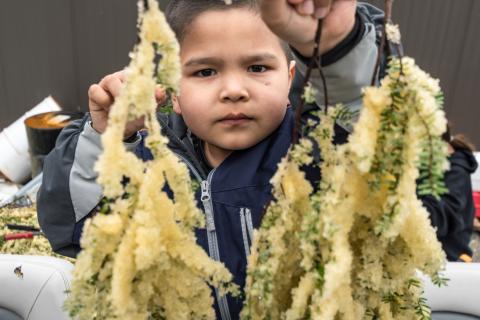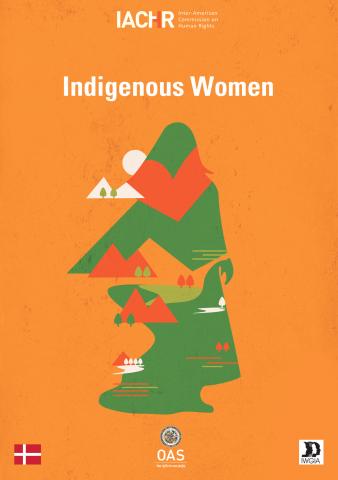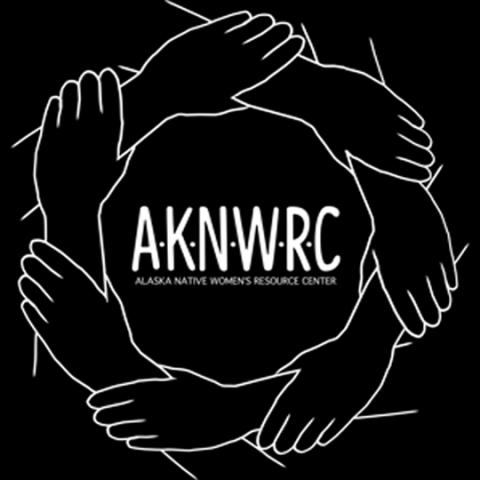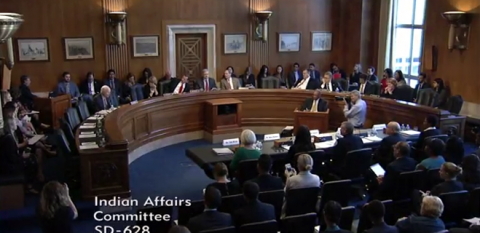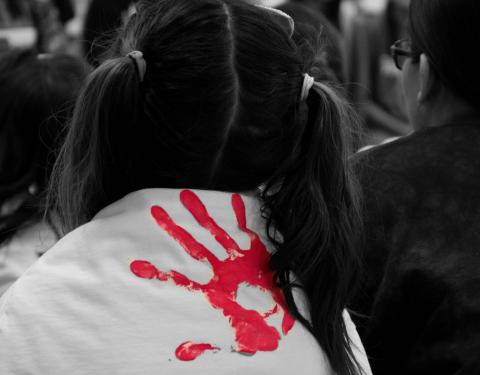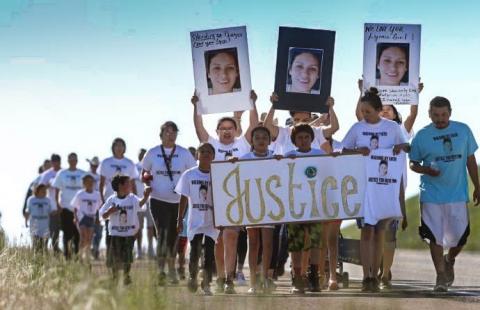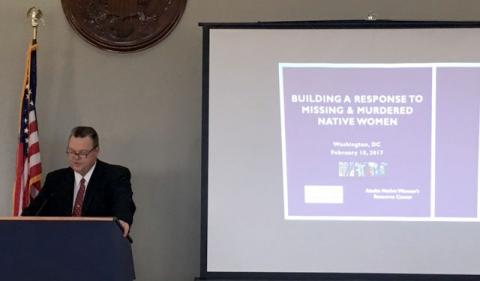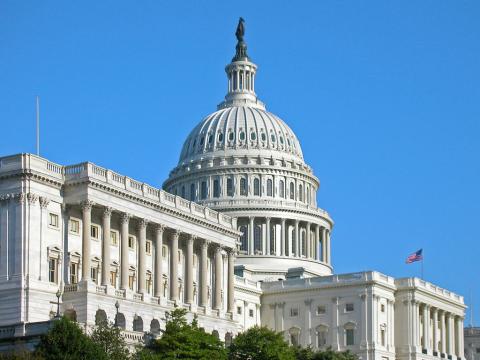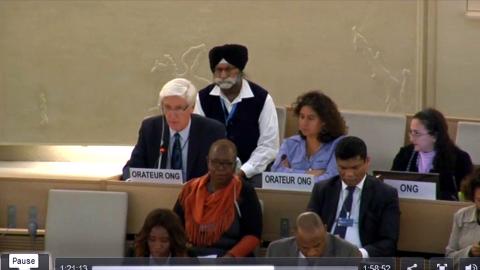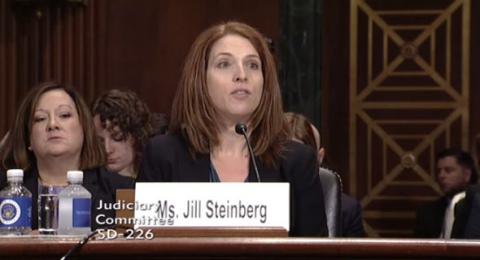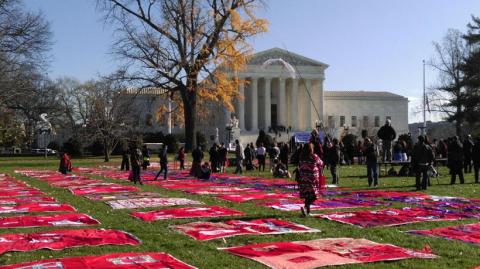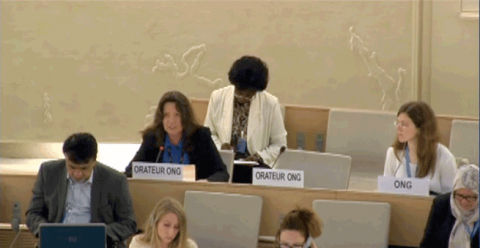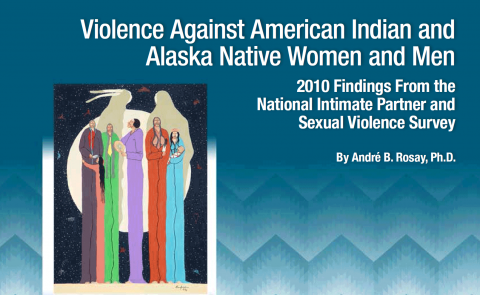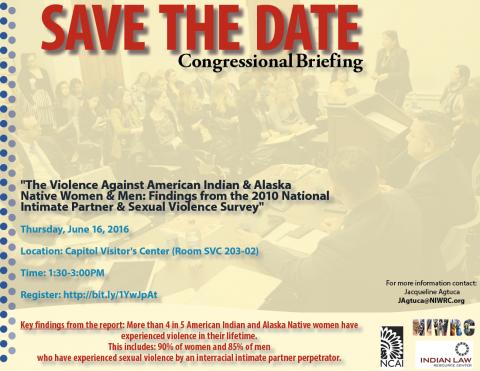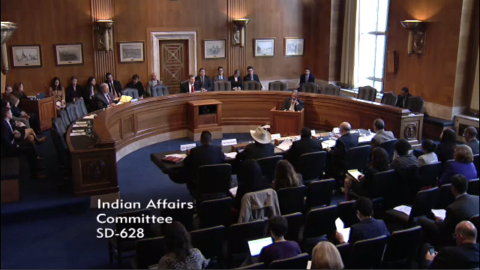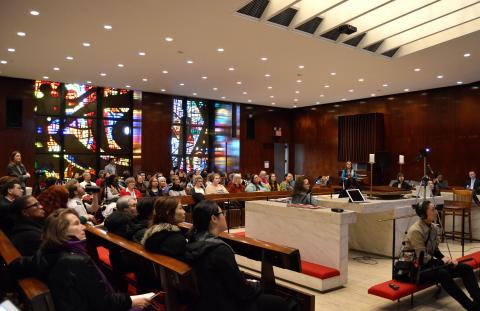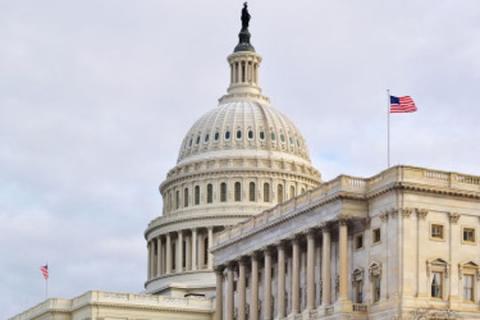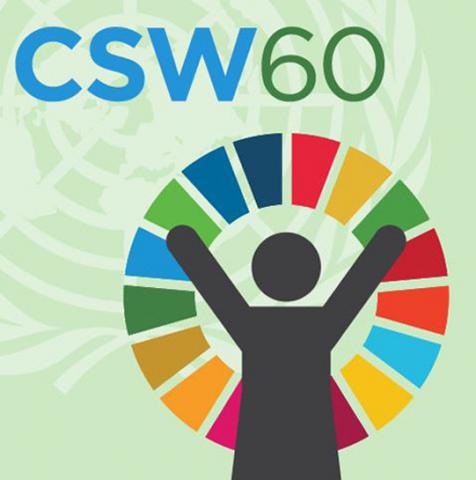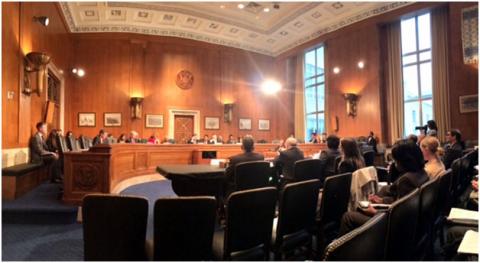You are here
Safe Women, Strong Nations
Commercial Interests vs. Traditional Ecological Knowledge
The Tlingit, Haida, Aleut, and Tsimpsian peoples of the Sitka Tribe of Alaska are fighting to protect Pacific herring in Sitka Sound. With commercial fishing interests operating in the Sound, the Sitka Tribe has been observing losses in both the spatial distribution and quality of Pacific herring spawn. They are now fighting to preserve their traditional way of life and seeking to have the State of Alaska take account of their traditional ecological knowledge in decision-making to protect the Pacific herring.
New Report by the Inter-American Commission on Human Rights focuses on the Human Rights of Indigenous Women in the Americas
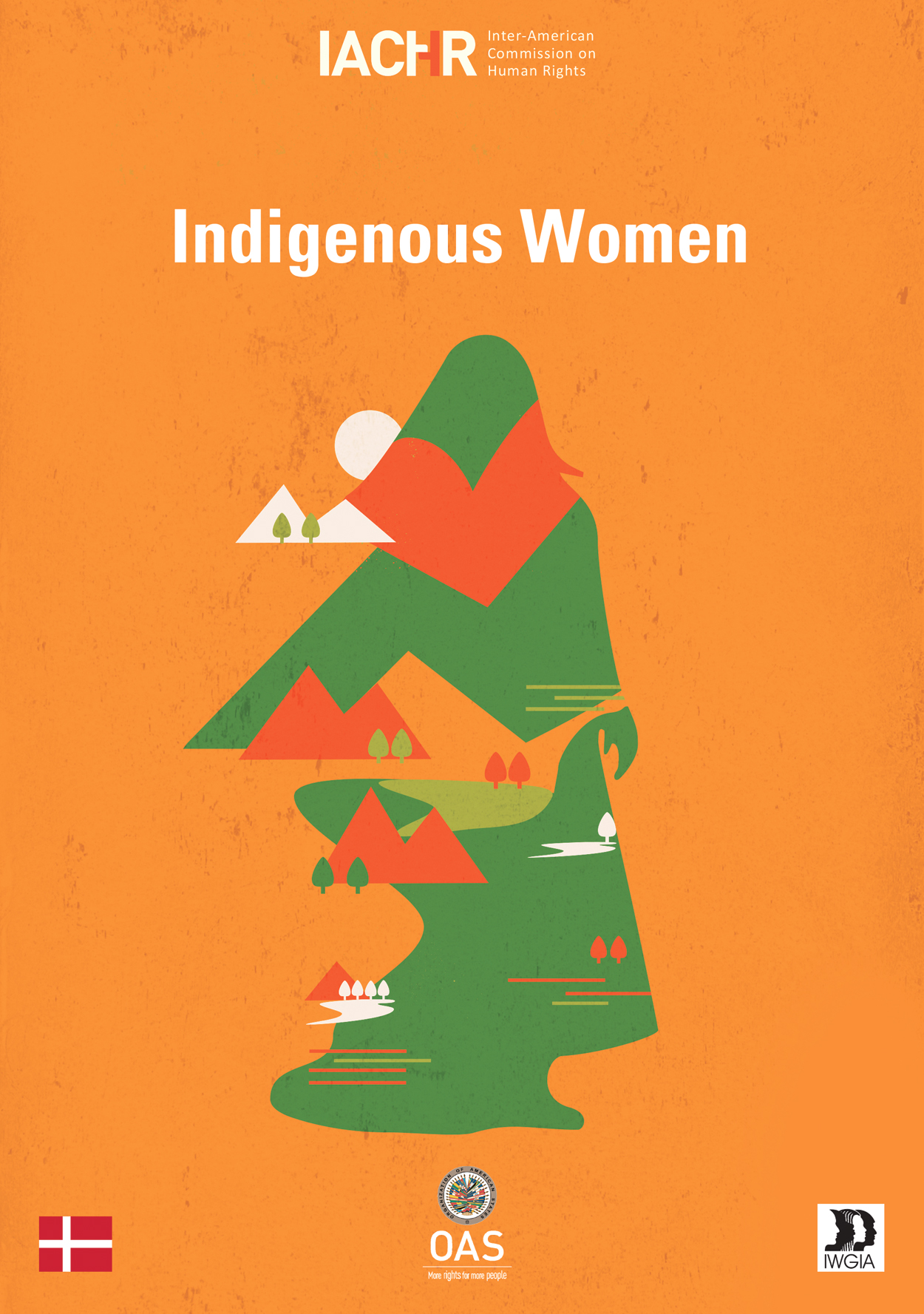 The Inter-American Commission on Human Rights (Inter-American Commission) has published an important new report, Indigenous Women and Their Human Rights in the Americas, based on information from indigenous women and leaders.
The Inter-American Commission on Human Rights (Inter-American Commission) has published an important new report, Indigenous Women and Their Human Rights in the Americas, based on information from indigenous women and leaders.
Historic Federal Support for an Alaska Native Tribal Resource Center on Domestic Violence
October 2, 2017 | The Alaska Native Women’s Resource Center (AKNWRC) is honored to announce that we have been awarded a federal grant by the Family and Youth Services Bureau, Administration for Children and Families, U.S.
Trafficking of American Indian and Alaska Natives
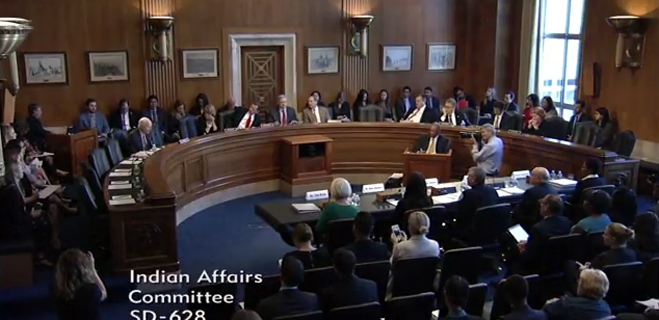 October 6, 2017 | The Senate Committee on Indian Affairs held an oversight hearing: “The GAO Reports on Human Trafficking of American Indian and Alaska Natives in the United States” on September 27, 2017 to examine two separate reports published by the General Accountability Office in 2017.
October 6, 2017 | The Senate Committee on Indian Affairs held an oversight hearing: “The GAO Reports on Human Trafficking of American Indian and Alaska Natives in the United States” on September 27, 2017 to examine two separate reports published by the General Accountability Office in 2017.
National Day of Awareness of Missing and Murdered Native Women and Girls
 On July 5, 2013, Hanna Harris, a member of the Northern Cheyenne Tribe, was reported missing by her family in Lame Deer, Montana. Hanna’s body was not found for five days. She had been raped and murdered.
On July 5, 2013, Hanna Harris, a member of the Northern Cheyenne Tribe, was reported missing by her family in Lame Deer, Montana. Hanna’s body was not found for five days. She had been raped and murdered.Law was meant to let American Indians prosecute violence; is it working?
March 25, 2017 | Brittney Bennett, USA Today
UN Commission on the Status of Women 61st Session
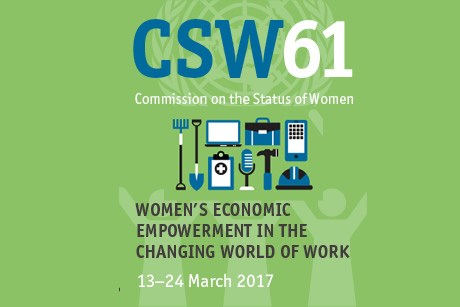
The UN Commission on the Status of Women designated the “Empowerment of Indigenous Women” as the Focus Area for its 61st Session in March, and this year’s meetings provided an important international forum to raise awareness about violence against indigenous women.
Congressional Resolution Aimed at Creating Awareness on Missing and Murdered American Indian and Alaska Native Women
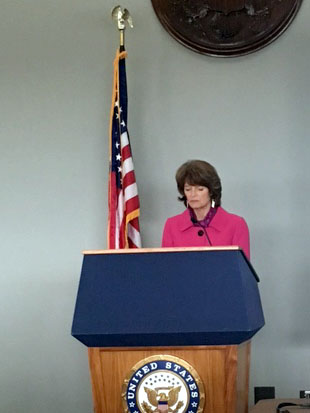
Congressional Briefing on Missing and Murdered American Indian and Alaska Native Women

Center again calls on UN Human Rights Council to take action to end violence against indigenous women and girls
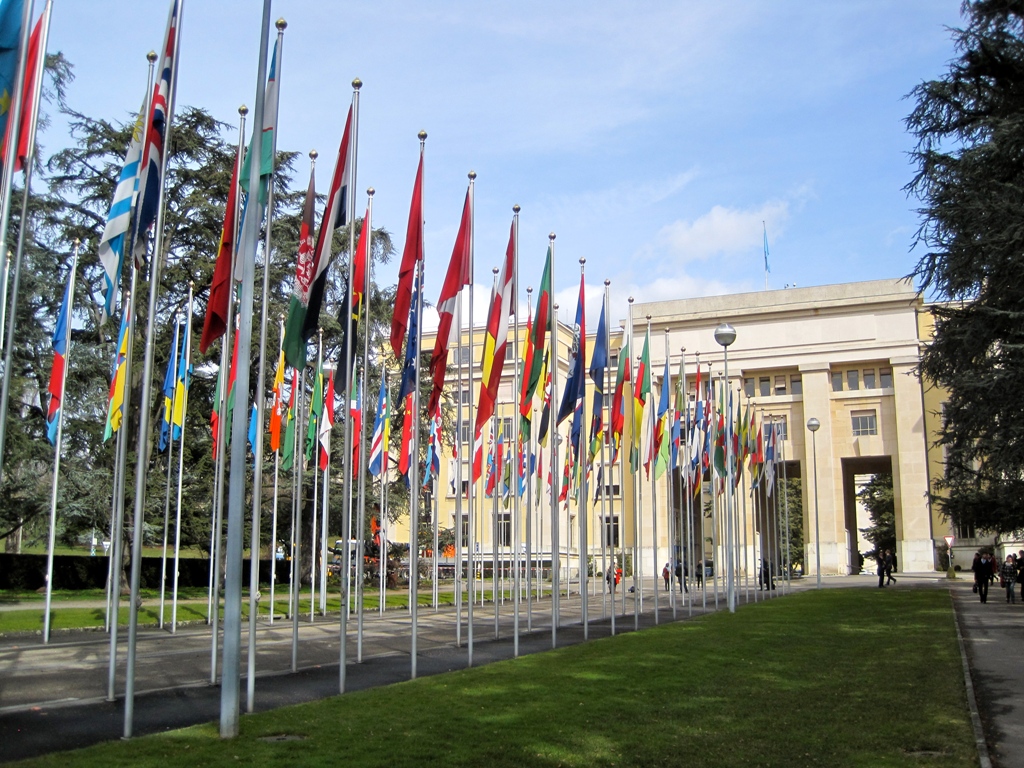 The UN Human Rights Council held its 33rd session on September 13-September 30 in Geneva, Switzerland.
The UN Human Rights Council held its 33rd session on September 13-September 30 in Geneva, Switzerland.
Supreme Court Tie in Dollar General Case ‘Clear Victory’ for Tribal Sovereignty
Originally published on Rewire by Nicole Knight Shine - June 24, 2016 | The case, Dollar General v. Mississippi Band of Choctaw Indians, hinged on whether the tribe had the authority to resolve civil lawsuits involving non-members—in this case, a $20 billion company—on Native lands.
Voisine et al. v. United States – Federal Firearm Ban Applies in All Tribal, Federal, or State Domestic Violence Convictions
On June 27, 2016, the U.S. Supreme Court announced its decision in Voisine et al. v. United States, 579 U.S. __ (2016), affirming that federal law (18 U.S.C. §922(g)(9)) prohibits gun ownership by individuals who have been convicted of a domestic violence misdemeanor, regardless of whether the crime was committed with knowing, intentional, or reckless intent. A conviction in federal, state, or tribal court triggers the firearms ban.
Senate Holds Hearing on the First Year of Implementation of the Justice for Victims of Trafficking Act of 2015
June 29, 2016 │ By Simon Gertler, 2016 Summer Sidley Fellow
On Tuesday, June 28, 2016, the Senate Committee on the Judiciary held a hearing to receive testimony from the Department of Justice and Government Accountability Office on implementation of the Justice for Victims of Trafficking Act of 2015 one year after its enactment.
The Statute
U.S. Supreme Court Decision on Dollar General Case Affirms Tribal Jurisdiction and Access to Justice for Native Women and Children
The United States Supreme Court released its decision June 23, 2016, in favor of the Mississippi Band of Choctaw Indians in a 4-4 tie. The decision in Dollar General Corporation v. Mississippi Band of Choctaw Indians affirms the Fifth Circuit Court of Appeals decision, which upheld the Mississippi Band of Choctaw tribal courts’ civil jurisdiction. The decision affirms that tribes have inherent civil jurisdiction over non-Indian defendants who sexually assault Native women and children on tribal lands.
United States v. Bryant –Tribal Court Convictions Upheld as Basis for Federal Prosecutions of Repeat Domestic Assault Offenders
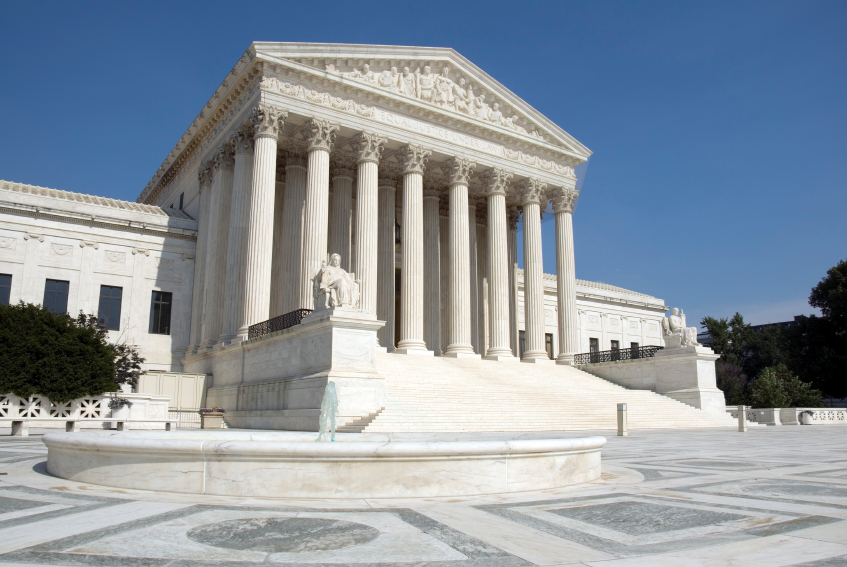 On June 13, 2016, the United States Supreme Court decided United States v. Bryant, 579 U.S. __ (2016), holding that uncounseled tribal court convictions that complied with the Indian Civil Rights Act of 1968 were valid as entered and could be used as predicate offenses in federal prosecutions under 18 U.S.C. § 117(a) without violating the Sixth Amendment.
On June 13, 2016, the United States Supreme Court decided United States v. Bryant, 579 U.S. __ (2016), holding that uncounseled tribal court convictions that complied with the Indian Civil Rights Act of 1968 were valid as entered and could be used as predicate offenses in federal prosecutions under 18 U.S.C. § 117(a) without violating the Sixth Amendment.
Center calls on UN Human Rights Council to take action to end violence against indigenous women
 Center staff attending the UN Human Rights Council’s 32nd session (June 13-July 1) in Geneva are calling for concrete measures to address the epidemic of violence against indigenous women and girls around the world, including American Indian and Alaska Native women.
Center staff attending the UN Human Rights Council’s 32nd session (June 13-July 1) in Geneva are calling for concrete measures to address the epidemic of violence against indigenous women and girls around the world, including American Indian and Alaska Native women.
Congressional Briefing on the Latest Data Regarding Violence against American Indian and Alaska Native Women and Men
On June 16th, the National Congress of American Indians, the National Indigenous Women’s Resource Center, and the Indian Law Resource Center are co-sponsoring a Congressional Briefing, to share information about the findings in The Violence Against American Indian and Alaska Native Women and Men: 2010 Findings from the National Intimate Partner and Sexual Violence Survey.
New Report Confirms Violence Against Native Women is Worse than Previously Thought
The National Institute for Justice has published its latest research report examining the prevalence of intimate partner and sexual violence against American Indian and Alaska Native women and men. This report increases awareness about American Indian victimization to inform policies and practices surrounding implementation of VAWA 2013 special domestic violence jurisdiction over non-Indians. In addition, the report highlights a critical need for further measures to intensify and strengthen the response to violence against American Indian women, and particularly Alaska Native women. On June 16, the National Indigenous Women’s Resource Center, Indian Law Resource Center, and National Congress of American Indians will be holding a congressional briefing to inform lawmakers about these and other findings.
Senate Hearing on the Tribal Youth and Community Protection Act and the Tribal Law and Order Reauthorization Act of 2016
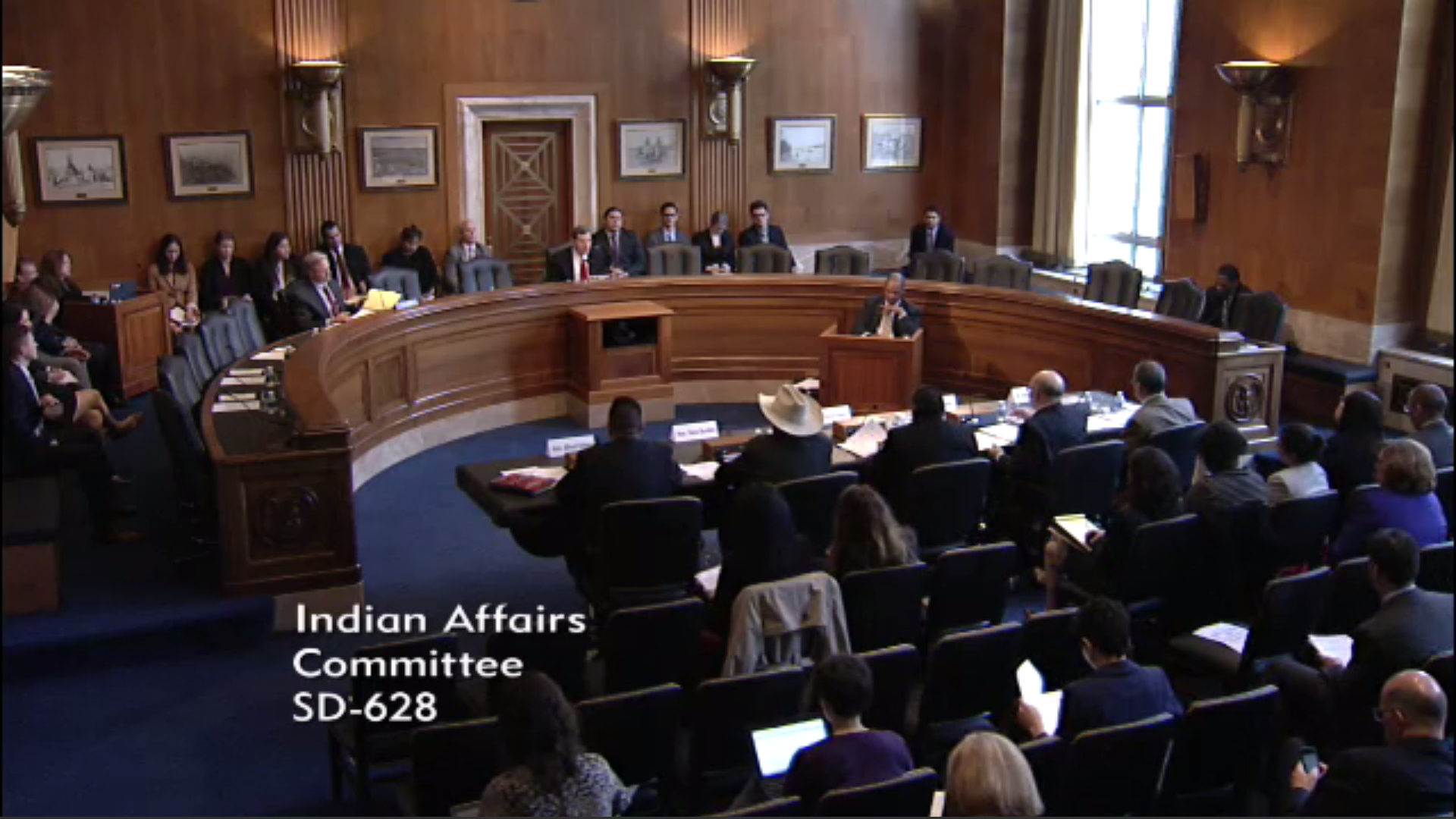 On Wednesday, May 18, 2016, the Senate Committee on Indian Affairs held a Legislative Hearing to receive testimony on two bills concerning tribal justice systems, the protection of Native women and children, and public safety in Indian Country:
On Wednesday, May 18, 2016, the Senate Committee on Indian Affairs held a Legislative Hearing to receive testimony on two bills concerning tribal justice systems, the protection of Native women and children, and public safety in Indian Country:
International Experts Explore Strategies to End Violence Against Indigenous Women and Girls
A capacity crowd converged at the Church Center for the United Nations chapel on Tuesday, March 22, 2016, in New York City for Together We Are Stronger: Indigenous Women’s Movements to End Violence Against American Indian, Alaska Native, and Aboriginal Women. This event was intended to recognize, strengthen, and honor the growing global movement to end the human rights crisis of violence against Indigenous women and girls.
Capitol Hill briefing on Violence Against Women Act in Indian Country
February 22, 2016
indianz.com
Tribal Leaders Call for Expanded Jurisdiction Over Non-Native Domestic Violence Offenders
Feb. 23 2016
By Kanya D'Almeida, Race and Justice Reporter, RH Reality Check
CSW60 Event Focuses on Ending Violence Against Native and Aboriginal Women
The UN Commission on the Status of Women will hold it’s 60th annual session in New York City on March 14-24, 2016. Composed of 45 member countries, the Commission is the global policy-making body for promoting gender equality and the empowerment of women. The Center, along with partners, submitted a joint written statement urging the Commission on the Status of Women to address the epidemic of violence against indigenous women in the United States, especially Alaska Native women in rural villages who have reported rates of domestic violence up to 10 times higher than in the rest of the United States and physical assault rates up to 12 times higher.
Amicus Brief: Dollar General v. Mississippi Band of Choctaw Indians
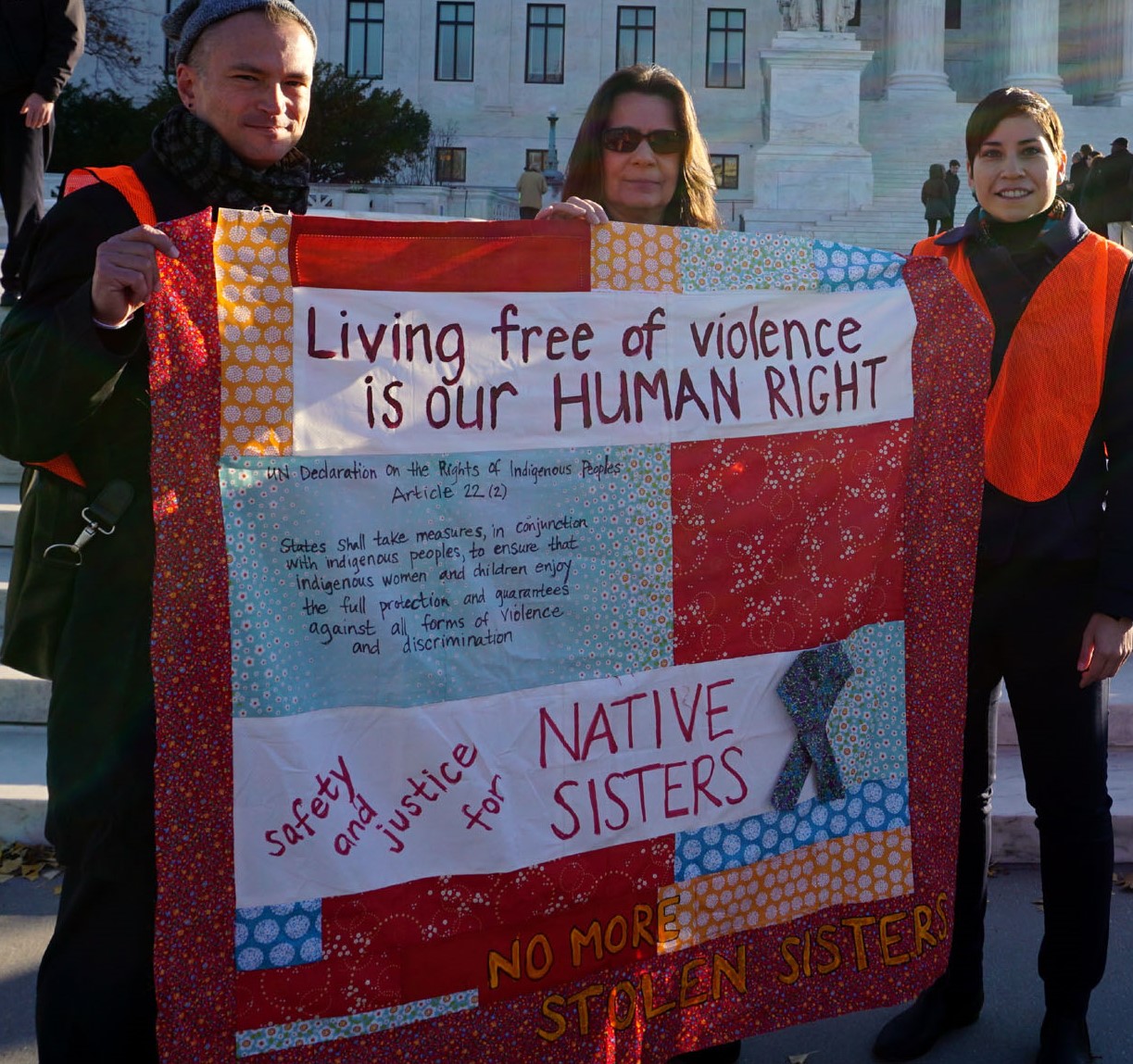
Program:
Quilt Walk for Justice - Related Articles
Tribal Justice on Trial: Dollar General, Part II • ICTMN • November 24, 2015
The Struggle for Justice on Tribal Lands • The New York Times • November 25, 2015
Program:
Tribal Law and Order Act at Five Years
On Wednesday, December 2, the Senate Committee on Indian Affairs held an oversight hearing: “Tribal Law and Order Act – 5 Years Later: How have the justice systems in Indian Country improved?”
Center delivers recommendations to the UN Human Rights Council to stop violence against indigenous women
Urging action to stop violence against indigenous women is a top priority for Center staff attending the UN Human Rights Council's 29th session from June 15 to July 3, 2015 in Geneva.
Violation of Human Rights
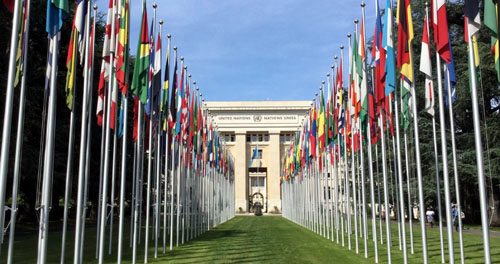 The epidemic of violence against American Indian and Alaska Native women highlights the United States’ failure not only under its own law, including the trust responsibility to Indian nations “to assist tribal governments in safeguarding the l
The epidemic of violence against American Indian and Alaska Native women highlights the United States’ failure not only under its own law, including the trust responsibility to Indian nations “to assist tribal governments in safeguarding the l
Program:
Reforming Federal Law to Restore Safety to Native Women
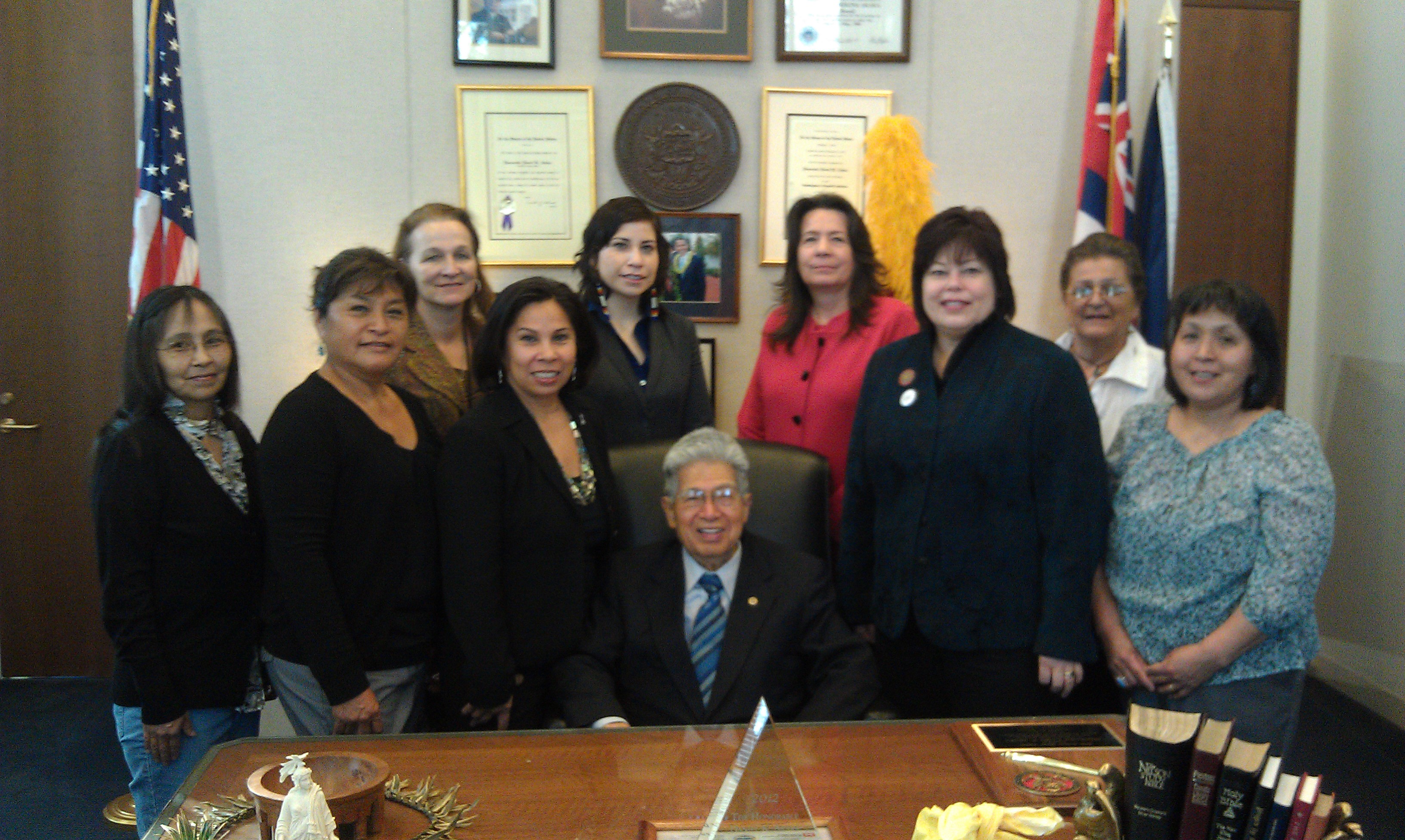 The Center collaborates with Native women’s organizations and Indian nations to change and improve United States law that unjustly restricts Indian nations from adequately investigating, prosecuting, and punishing these crimes against all perpetrators.
The Center collaborates with Native women’s organizations and Indian nations to change and improve United States law that unjustly restricts Indian nations from adequately investigating, prosecuting, and punishing these crimes against all perpetrators.

